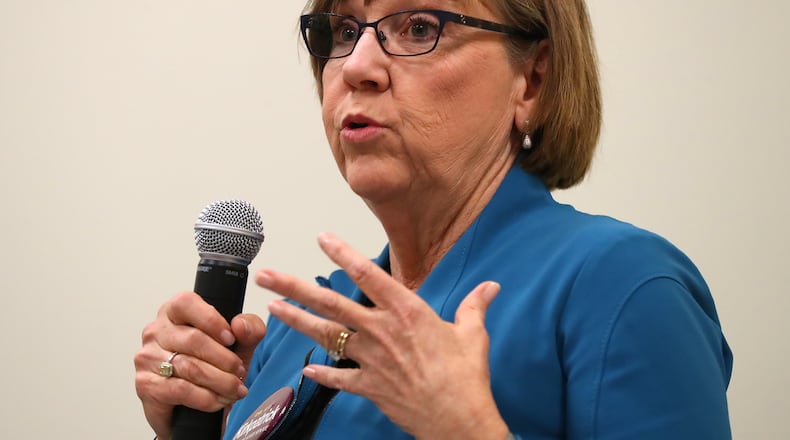Georgia senators unanimously approved a bill Monday designed to cut back on the state's stubbornly high maternal mortality rate.
An amended version of House Bill 1114 now heads back to the House, where legislators have only a few days to act before the end of the 2020 session.
The measure, which senators cleared 48-0, would extend Medicaid for low-income mothers from two to six months following the birth of a child. And it would give the Georgia Department of Community Health the authority to seek a federal waiver to do so if necessary.
But the effort is largely a symbolic one for now. The budget crunch created by the coronavirus means that the Legislature will need to find the funding for it later.
“Although our budget crisis is affecting all our programs, this bill moves us in a better direction to cover our new moms and babies during a vulnerable period in their lives,” said state Sen. Kay Kirkpatrick, R-Marietta, the bill’s sponsor. “This should pay dividends for the state in years to come.”
AJC In-Depth: Medicaid limit, OBGYN shortage in Georgia hamper efforts to limit maternal mortality rate
Georgia has consistently ranked among the worst U.S. states for maternal deaths. Mortality rates are particularly dismal for Black women: they are three to four times more likely to die when they become mothers in Georgia than white women.
A state study committee found that 60% of Georgia's maternal deaths between 2012 and 2014 were preventable, and it recommended the Legislature extend Medicaid for a year after low-income women give birth. Most fatalities happen not during childbirth, but in the months following due to factors like postpartum depression, high blood pressure and cardiac conditions, according to the study committee.
This year’s tight fiscal climate, however, made legislators scale back their ambitions.
Even before the coronavirus blew a hole in the state budget, GOP leaders opted to provide for six months of coverage rather than 12, and senators this week amended the bill so that it wouldn't be effective until the General Assembly finds the money to pay for it. That might not be until 2021 or later.
House Bill 1114 would also clear the way for Medicaid coverage for lactation care and services to pregnant and lactating women and their children.
Staff writer Maya T. Prabhu contributed to this article.
About the Author
Keep Reading
The Latest
Featured




